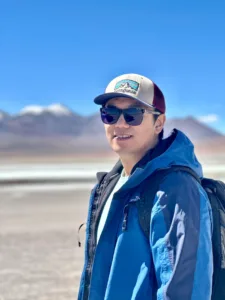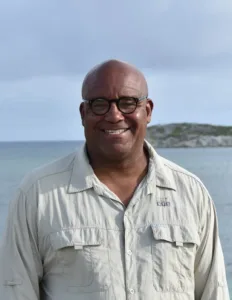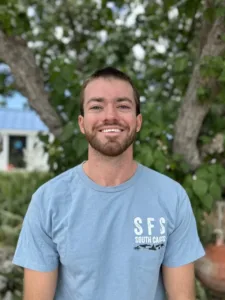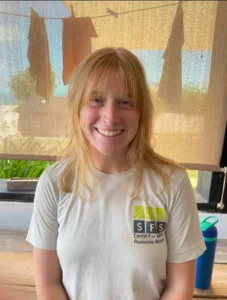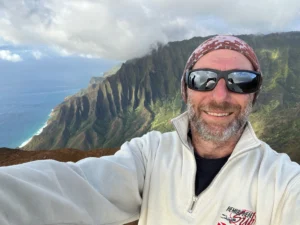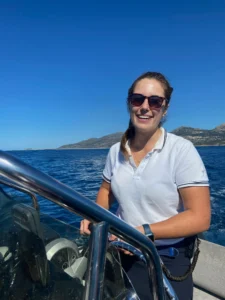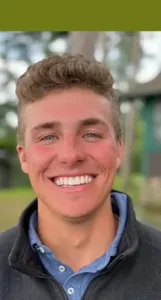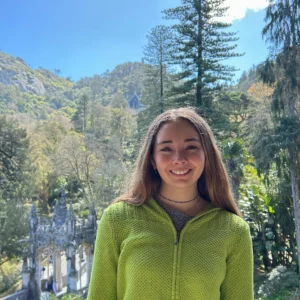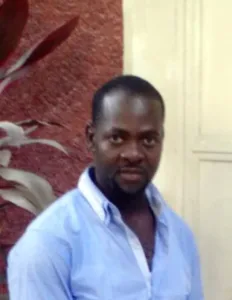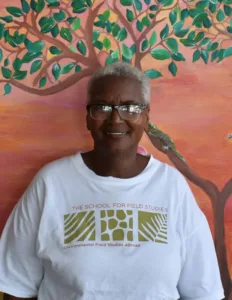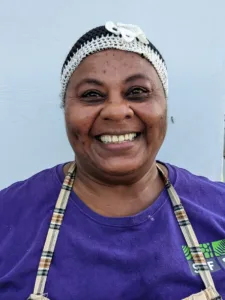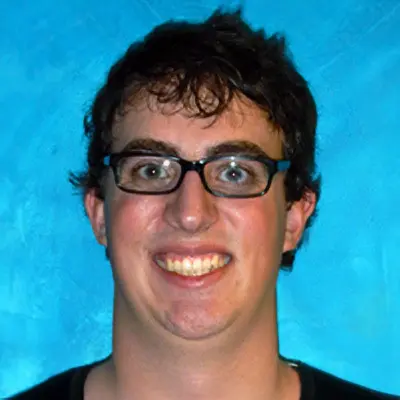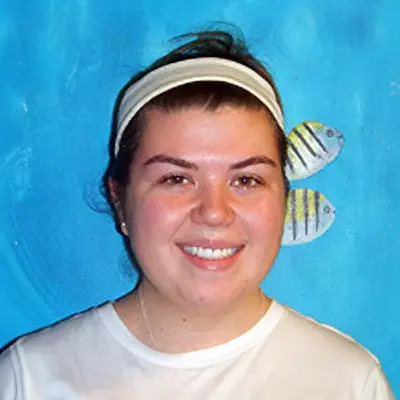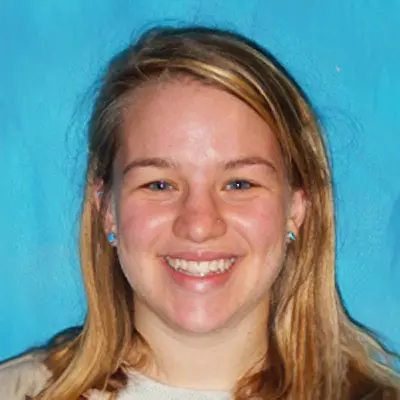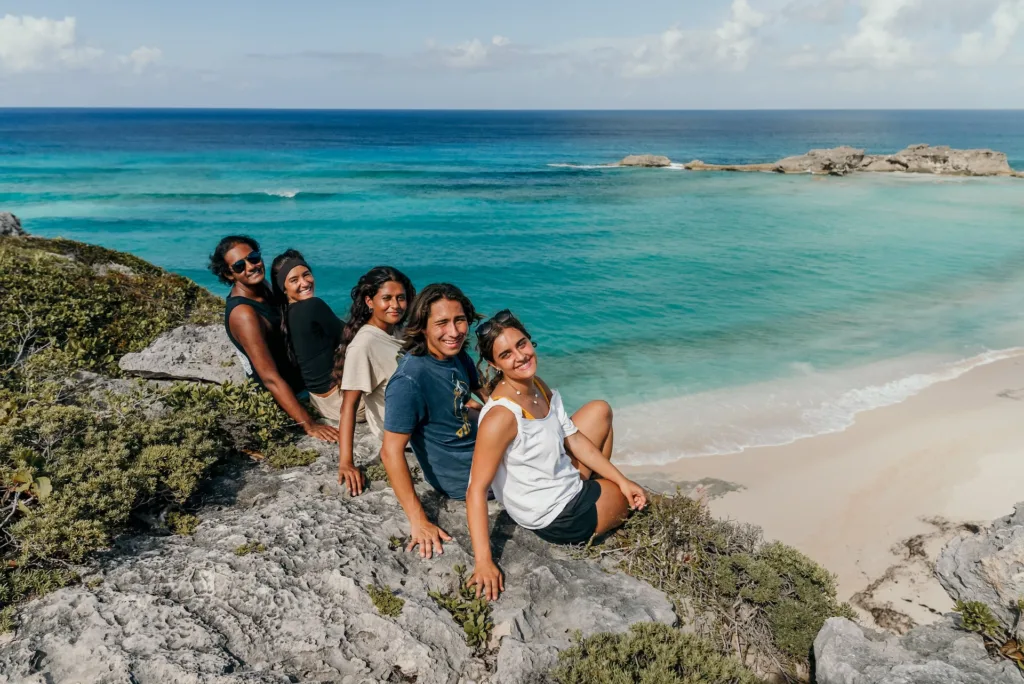Turks and Caicos Islands
Study Abroad in Turks and Caicos Islands
Have you ever wanted to live on a remote island, spend your days exploring vast underwater ecosystems, or catch your first glimpse of a sea turtle, reef shark, or eagle ray in the wild?
Whether you’re an experienced traveler or looking for your first excursion to another country, studying abroad is an important component of your college career. Living abroad gives you the opportunity to explore new places and learn about different cultures, gaining important global perspectives, discovering new things about yourself, and building lifelong friendships.
Our programs in TCI take place largely in the coral reefs, cays, and waters surrounding the island, but time is also spent above-ground with the community on the island. Courses and fieldwork focus on key environmental issues faced here such as biodiversity conservation, environmental policy, and fisheries management. These marine ecosystems are critical to the fisheries-driven local economy, and are under enormous pressures from coastal development, a rising demand for seafood, and the impacts of climate change. Our research plays an important role in supporting Turks and Caicos residents and government authorities as they work to balance economic need with the preservation of irreplaceable natural resources.
Programs
Marine Resource Studies
See Program Costs
Program Costs
- Tuition
- Room & Board
- Total
Fundamentals of Marine Conservation
See Program Costs
Program Costs
- Tuition
- Room & Board
- Total
Marine Fauna
See Program Costs
Program Costs
- Tuition
- Room & Board
- Total
Where You'll be Living
The Center for Marine Resource Studies is located on one of the smallest island in Turks and Caicos. The unique campus is a former hotel that overlooks the crystalline waters of the Atlantic Ocean. Spectacular sunsets, open-air facilities, warm sunshine, and a refreshing ocean breeze define this remote marine field station. Get to know the small, historic town of Cockburn Harbour, engage in community activities, and spot the flamingoes, wild horses, and donkeys that call this tiny island home.
- Dorm living with four to six students per room
- Waterfront campus with direct access to the ocean
- Air-conditioned classroom and conference room
- Open-air dining space, on-site cooking staff
- Dive shed, and small fleet of research boats
- Volleyball, hammocks, and swimming pool by the ocean
Know before you go
Click on each dropdown to explore details about life at this Center, and determine if it’s the right fit for you.
Program experience
Living Conditions & Daily Life
Students follow a structured weekly schedule including classes, marine fieldwork, community service, and optional waterfront activities, typically from 8 AM to 6 PM, Monday through Saturday.
Evenings and Sundays offer time for rest, town visits, or informal activities organized at the SFS Center. Shared dormitory-style accommodations and communal meals are provided.
A daily curfew is observed throughout the program. The SFS Center closes during mid-semester break (1 week) in Fall and Spring programs. During this time, independent travel is required, though many Students coordinate plans with peers.
Local amenities are limited: restaurants mostly offer takeaway only, sit-down options are rare, and grocery stores carry basic provisions. A local gym and athletic field are accessible on foot from the center.
Physical Readiness
The program includes snorkeling, SCUBA diving, and marine field research. Students must be able to exert themselves at a level comparable to a 1-mile (1.6 km) run, often in strong currents or choppy water.
The climate is hot and humid year-round, with strong sun exposure and no air conditioning in accommodations. SCUBA students must submit a physician-reviewed Diver’s Medical Questionnaire and may need additional clearance based on personal medical history.
SCUBA gear weighs up to 50 lbs, and students are often in the water daily when conditions permit. Accessibility—especially for water-based activities—is limited for those with mobility impairments or respiratory concerns.
Travel & Transitions
The program is based on South Caicos, with most travel by boat or vehicle within 1 mile of the SFS Center for field excursions. Occasional trips to sites across the island are under 30 minutes by vehicle.
Semester programs include one off-island camping trip. Travel is minimal and schedules are relatively stable, supporting consistent learning and immersion.
Location & Culture
Program Location & Natural Environment
South Caicos is a remote, rural Caribbean Island with a population of ~1,000. It is accessible by ferry or a 15-minute flight from Providenciales.
The center operates entirely on collected rainwater. Students are limited to one freshwater shower per week, though daily saltwater showers are available and must hand-wash their laundry in saltwater.
Expect high levels of sensory engagement—the sounds of waves, vibrant coral reefs, and constant proximity to marine life.
Cultural & Linguistic Differences
South Caicos has a blend of Caribbean cultural influences, including Haitian, Dominican, and Jamaican communities. When venturing outside the SFS center, conservative dress is expected when engaging with the local community (covered shoulders, midriffs, and longer shorts).
English is the primary language spoken, with Creole and Spanish also present in the community. All classes are conducted in English, and cultural adaptation is generally manageable with respect and awareness.
health
Allergies & Dietary Preferences
Meals typically consist of rice, potatoes, canned vegetables, and basic proteins. Fresh fruits and vegetables are limited, and vegan or gluten-free diets may lack variety. Cumin is a staple ingredient in nearly all food preparations. A microwave, hot water kettle, and refrigerator are available for student use, but regular meal prep is not feasible.
The SFS Center houses two dogs, and while efforts are made to limit their presence indoors, fur and dander may accumulate. Stray dogs are common around the island.
Cross-contamination accommodations for advanced allergies abroad may not be feasible. Students with severe or life-threatening allergies and/or strict dietary requirements must consult with medical professionals and [email protected] before applying.
Required Vaccinations & Health Care
SFS does not require specific vaccinations for this program. For additional recommendations, consultation with a travel medicine professional is strongly advised before departure.
A small local clinic offers basic services. Specialist care requires travel to Providenciales (via ferry or flight), potentially requiring overnight stays and costing approximately $180–$200 round trip. In emergencies, evacuation via the US Coast Guard to Miami or other U.S. hospitals may be necessary.
Routine in-person medical and counseling services are not feasible during the program. Students must bring a full supply of any prescription medications, including psychotropic medications, for the entire duration of the program, as local refills may not be available without prior arrangements.
PRogram Costs
Study abroad is an investment in yourself – you’ll return home with new experiences, skills, knowledge, and friendships that will stay with you for the rest of your life. SFS program costs cover a variety of expenses, including:
- Pre-program advising and on-site orientation
- Tuition and research fees
- Housing at the field station and on excursions
- Daily meals and snacks
- Airport transfers (for arrival/departure)
- Field excursions and cultural activities
- Student success and wellness team on site
- 24/7 mental health and well-being support
- Emergency evacuation and repatriation insurance
- Official transcript processing
Financial Aid
We know cost can be one of the biggest barriers to studying abroad. At SFS, we’re committed to making our programs accessible to students which is why we award a generous amount in need-based financial aid each year. Our Admissions Team has worked with thousands of students and are here to answer your questions about the SFS aid process, aid available through your home school, and funding from external sources.
SFS Financial Aid: Need-based aid packages typically consist of a combination of scholarships, grants, and zero- and low-interest loans. SFS matches Federal Pell Grant funding for students applying to an SFS semester program.
Home School Aid: Be sure to ask your home school study abroad office or financial aid office what financial aid resources might be available to support your study abroad experience.
External Funding Opportunities: Organizations such as the Fund for Education Abroad or the Gilman International Scholarship Program award scholarships to students going abroad. These can be a great opportunity to reduce the cost of your program even more.
Research
Research at the SFS Center for Marine Resource Studies focuses on the health of marine habitats, natural resource conservation, and local livelihoods. Students and faculty engage with the local community as they explore the impacts of environmental threats, commercial fisheries, and increased tourism on the area ecosystems and the small island’s economy.
Our research focuses primarily on the following themes:
- Tourism impacts
- Commercial fisheries
- Coral reefs, mangroves, and seagrass ecosystems
- Marine protected areas
- Climate change and the ocean


Community
SFS is an active part of the Big South community, where we have been based for over 30 years.
We have built long-term, collaborative relationships in the communities around the Center, and developed our research plans based on the environmental issues they and the surrounding ecosystems face. Throughout the program, students experience the Caribbean culture and island lifestyle and participate in community activities including tutoring and mentoring local children, providing swim and snorkel lessons, demonstrating field research techniques to high schoolers, and playing sports with the locals.
At the end of each semester program, we host a Community Research Night where select students will present their research findings to the community. SFS research data is shared with the community, local NGOs, and the Turks & Caicos government.
Meet the Turks and Caicos Islands Team
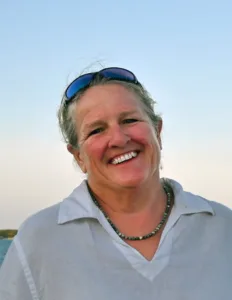

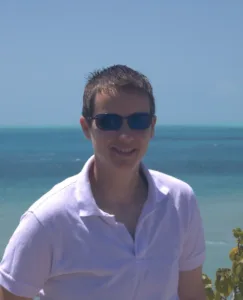
C.E. “Shades” O’Brien, PhD
